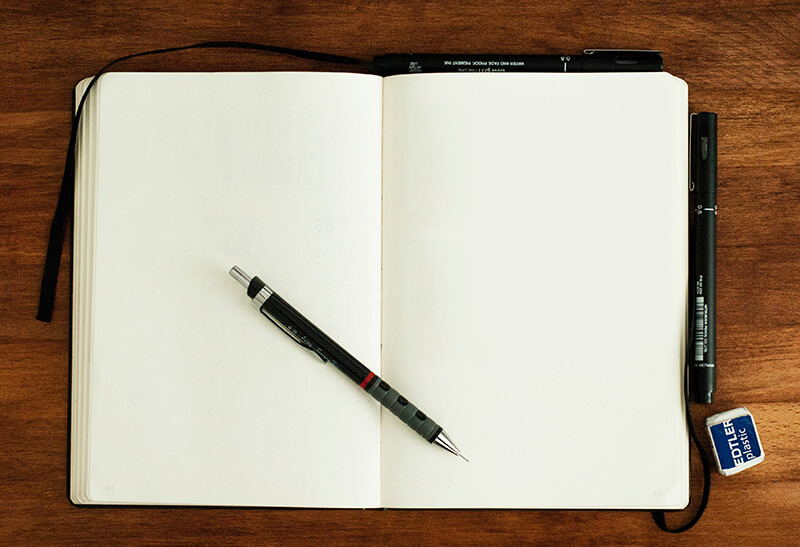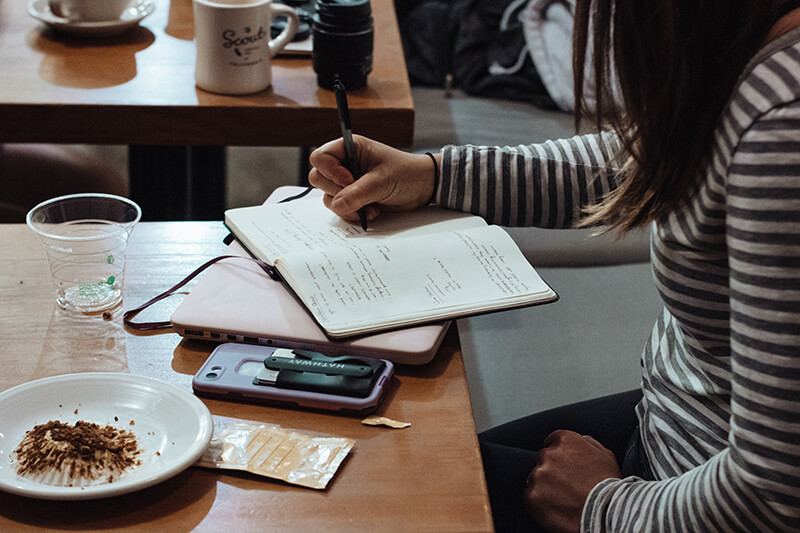
How To Write An Essay: Everything You Need To Know
 Learning how to write an essay is an integral part of any student’s life. As early as the third or fourth grade, students are encouraged to practice their writing skills. From the age of 8 or 9, students must know how to articulate their thoughts and place ideas on paper. While some students can find new passions in writing and reading at this age, some do not. Some students even at college-level will have difficulty writing essays.
Learning how to write an essay is an integral part of any student’s life. As early as the third or fourth grade, students are encouraged to practice their writing skills. From the age of 8 or 9, students must know how to articulate their thoughts and place ideas on paper. While some students can find new passions in writing and reading at this age, some do not. Some students even at college-level will have difficulty writing essays.
In this blog, we’ll thoroughly discuss essay writing. We’ll show you the correct essay structure, the correct essay format, provide essay examples, and basically, show you how to make a perfect essay.
Writing An Essay Is Not An Easy Feat
If you want to learn how to write an essay, an important part is not being too hard on yourself. You may not have an innate ability to write an essay in English and that’s okay. English isn’t everyone’s first language. It can be hard to speak a second language and even harder to write in it. Even native English speakers have a hard time writing an essay so as long as you’re willing to learn and better yourself, you’re on the right track.
The writing process doesn’t automatically mean starting your introduction as soon as possible. There’s something called the prewriting stage which a lot of students can overlook. Arguably, this overseen step is just as important as other parts of an essay like the outline, thesis statement, and other parts that we’ll discuss later on.

The Essay Prewriting Stage
Here are some of the prewriting steps you can take according to Defiance College. If you want to know how to write an easy essay, follow these prewriting steps to make the rest of the writing process easier.
1. Choose Your Topic
There are many ways to start an essay but it’s always best to start with the prewriting preparation. It’ll take a longer time to do this step so you might as well put it on the top of your priority list.
Choosing a topic could go one of two ways. Your professor could either assign a specific topic or a list of topics to choose from. This is a much easier way to choose a topic because you already have a pre-approved list from your professor. The harder option of choosing a topic entails a little more research on your part. There are a multitude of topics to choose from. To narrow down your choices, make sure you are choosing a topic that’s relevant to the class subject that needs the essay.
Here are some relevant blog entries that will help you during the prewriting stage.
● Types Of Essays: How To Write Them and Sample Topics
● 250 Research Topics For College Students
● 100 Powerful Argumentative Topics
● How To Come Up With Good Topics
2. Identify Your Audience
Before you start writing, you need to know who’s going to be reading it. A good and effective essay aims to teach its readers something. In order to effectively share new knowledge with your readers, you need to be able to relate to them or write in a way that specifically speaks to them.
According to the Indiana University of Pennsylvania, here are some of the questions you should ask to determine your audience and how you can effectively write for them.
1. Who are your audience or readers?
Here are some possible questions to determine your audience:
● Age
● Sex
● Education
● Economic status
● Social position
● Values
● Assumptions
2. What does your audience know or think about your topic?
3. What will my readers expect from my essay?
4. How can you interest your readers in your subject?
5. How can you get your readers to read your essay?
By determining the answer to these questions, you can easily decide on positions whether you’re writing on the more neutral side or taking a more argumentative stance. You should always have a purpose for writing and your audience helps decide this. By knowing how much your readers know about the topic, you can determine the scope and limitations of your study and just how much new information you will provide.

3. Identify The Purpose Of Your Essay
According to the Western Sydney University, the purpose of your essay is to present coherent arguments that respond to a stimulus or question. You should also be able to persuade your readers of your new-found information.
When learning how to write an essay, you should know that varying essays can have different purposes. Some essays aim to argue a specific stance, some persuade readers about a specific side, and some teach readers through an in-depth tutorial. Essays can also simply narrate a story, describe an event or phenomenon, define subject matters, explain processes, and even compare and contrast two different viewpoints.
Whatever you decide your essay type is or whatever type of essay you are assigned to write, make sure it is clear to you so you can properly complete the task.
4. Brainstorm
One of the best essay writing tips has less to do with the actual writing and more so with researching. Here are some helpful brainstorming ideas to get you started on how to write a long essay.
● Set an end goal
Don’t just aimlessly brainstorm without having an end goal in mind. Make sure you are actually figuring out ideas and not just procrastinating.
● Write down all your ideas
A great brainstorming tip is to do a brain dump. Basically, you write down anything that comes to mind or anything that sparks interest and inspiration. It may not make sense as you’re doing it, but having a written representation of your thoughts can further spark your brain into coming up with more concrete ideas.
● Think about your interests
If you have free reign on deciding an essay topic, you can easily do so by choosing a topic that already interests you. It will be much easier to write about, there will be less research required, and you’ll flow naturally when you are talking about something you like. Or maybe there’s a topic you’ve always wanted to learn more about, then this is your opportunity. Essays require research and you will learn so much along the way.
● Freewrite
Just like brain dumping, you can just start writing and see where it takes you. It might be a rough draft now, but it will be the foundation of your essay and you can always edit later rather than just staring at a blank page.
● Ask help
The best part about being in school when learning how to write an essay is the access to other people who are more knowledgeable and can spark inspiration. You can always seek help from your professors on topic ideas and where to get reputable sources. You can also lean on your friends to proofread for you and you can all make peer reviews on each other’s essays.
● Take breaks
There’s no need to overwhelm yourself when you are simply coming up short on ideas and words to fill your essay. A tired brain cannot function properly. Make sure you are taking breaks and nurturing yourself so that you can function at your best.

5. Organize Your Information
After the first four steps, you should be able to gather enough information to finally start writing. In order to not get overwhelmed with all the new ideas, it’s important to stay organized. You can effectively do this by making lists and knowing which parts of the essay to prioritize.
If you have plenty of sources, it would be best to create a system where you organize your main points or arguments and have the corresponding sources to back them up. It’s also okay to have many drafts as you make your essay. You might realize later that some parts are better in other areas and you might come up with a better storytelling technique. Always re-read your essay and make sure that you are staying coherent.
The Correct Essay Writing Format
To follow the correct essay format, make sure you thoroughly follow your professor’s instructions and writing prompts. Depending on your branch of study or university, your advisors can have specific format instructions. Make sure you know which citation to follow as well, whether it’s in APA or MLA format.
For the most part, a basic essay format follows 3 major parts: the introduction, body, and conclusion. For technical parts, make sure you follow your professor regarding fonts, double spacing, header formats, margins, page numbers, indentations, and alignment.

How To Write A Good Essay
According to The University of Melbourne, an essay is an assessment of students’ strong critical thinking skills and their ability to put it into academic writing. The university also listed six tips on how to write an essay that is good, coherent, and can give its readers new value and information. To learn these writing essay tips, read on below!
1. Analyze the question or writing prompt
A good essay aims to answer a specific question. In order to write a good essay, you need to analyze the question and know precisely what is being asked of you. Here are the three components every essay writing prompt contains:
● Content terms – terms and concepts that are specific to the essay
● Limiting terms – refer to the scope of the topic
● Directive terms – refer to specific instructions that relate to the content of the essay. Specifies whether the task is to discuss, analyze, compare, define, or evaluate.
To further understand these three terms, here’s a sample topic:
Essay writing prompt: Cite an instance when Article 5 of the NATO treaty was invoked.
● Content terms – NATO’s article 5
● Limiting terms – when was Article 5 in NATO invoked
● Directive terms – Discuss the events that led to the invocation of Article 5 of NATO
2. Make a definite argument
Your argument or defining statement is also more commonly known as a thesis statement. It states your position on the essay and it encapsulates your answer to the essay question.
A sample thesis statement for our sample essay prompt could be: “Members of the North Atlantic Treaty Organization rallied behind the USA after the 9/11 attack.”
You can use your thesis statement as the backbone or foundation of your essay where you can expound on the evidence that backs up your statement.
3. Use evidence from reputable sources
A good essay cites already existing scholarships and written work on your specific topic. To truly convince your readers, you have to be cunning in your use of evidence and sources. There are many do’s and don’ts when it comes to making references. You have to be careful when choosing sources because there is a lot of misinformation online and not everyone has access to a good physical library. Researching physical books could also be tedious and while it is easy to research online, not all sources are reputable.
For starters, you can go ahead and skip using Wikipedia as a reference. Just about anyone can make edits on Wikipedia pages and it takes quite some time before moderators can correct this so you can’t be too sure. Instead, use Google Scholar to find reputable written work by credible authors.

4. Be organized
Every essay contains these three main components – the introduction, body, and conclusion. If you organize your essay following this order of components, you’re more likely to succeed in sharing newfound information and knowledge with your readers and get a good grade from your professors.
1. Introduction
The introduction is where you start to introduce your topic to the reader. Students can often find this part the hardest because it’s the start of the whole writing process. We’ve compiled an easy-to-follow blog on How To Write An Introduction That Will Hook Your Readers Instantly to inspire students in their essay writing process.
To write a good introduction, make sure it contains your thesis statement. A thesis statement according to the Writing Center of The University of North Carolina at Chapel Hill aims to tell the readers your interpretation of the subject matter you’re about to discuss. It’s also known as the road map the rest of your essay follows to stay coherent. You can usually find the thesis statement at the beginning of your essay or in the introduction so don’t forget this important component.
If you’re having trouble finding a way on how to write an essay, read our blog and learn How To Start An Essay in 10 Different Ways.
2. Body
The body of your essay is where you expound, explain, discuss, and elaborate on your main points. This is where you reveal the layers beneath your thesis statement. The main body of your essay should at least include three main points or arguments that support your stance on the subject matter.
To have substantial data in the body of your essay, research is very important. Students may find it hard to find the words to fill the body of their essays and the answer to this is to learn everything relevant about your topic. You need to gather enough information and evidence to support your argument and try to present it through writing.
To know more about the research process and a more in-depth tutorial on how to write an essay body, check out How To Write A History Research Paper and get ideas and essay topic samples.
3. Conclusion
The conclusion part of your essay which is at the very end shouldn’t contain any new information. All newly presented facts or information should already be discussed before you make a conclusion.
To write your conclusion, you can briefly restate your main points and thesis statement. The conclusion part contains the significance of your study and what value your essay added to the body of knowledge regarding the topic. There’s also no need to repeat anything you’ve already stated in the body. A mere summation can get you a mediocre essay, but a conclusion that brings your readers full circle makes for a really great essay.
5. Be clear
An underrated essay tip is to write clearly. Students might think adding embellished words and trying hard to sound smart is the best way to write an essay. There’s actually no better way on how to write an essay and convey your message than being concise. Use simple and easy-to-understand language when writing your essay. As the writer, you need to understand your own text if you want to persuade any of your readers.
Here are some questions that can help you view your essay in a new light according to the University of Melbourne.
1. Did you state your argument in the introduction?
2. Have you clearly indicated how your main points support your argument?
3. Does each paragraph introduce a new idea?
4. Do the sentences support the main idea in every paragraph?
5. Have you used relevant evidence and reasoning in your paragraphs?
6. Is there a logical progression in each paragraph?
7. Are the sentences grammatically correct?
8. Have you checked all the spelling?
9. Are your sentences clear to your readers?
10. Are there redundancies and repetition in your essay?
Consider these questions as a checklist before you turn in your essay to ensure you’ve written a clear and logically organized essay.

6. Make proper citations
An underrated and very important part of your essay is the references. Even the best scholars who provide new contributions to a specific body of knowledge cite resources and references that have come before it. Because we are not making new discoveries in our essays, we are most likely lifting ideas from other authors and simply making deductions or adding our opinions. For your essay not to be considered plagiarized, learn how to make proper citations. Your professor could have you follow a specific format so make sure you note down their instructions. More complex essays call for in-text citations and a separate reference page and some only need your reference list. Citations aren’t simply a nod to authors and their work but it also helps your reader see how reputable your sources are by referring to your citations.
Citation Styles
The two most common citation styles for essays that are required in colleges, universities, and even high schools are the APA and MLA formats. According to The University of Arizona, the APA and MLA citation styles share some similarities. Both follow double-spacing, use a Times New Roman font at size 12, and have a one-inch margin on all sides of the page.
APA stands for American Psychological Association while MLA stands for Modern Language Association. The purpose of both and all citation styles are to contextualize a source of information without changing, editing, or compromising the original point or body of the text. Sometimes we need to lift specific parts of texts from a book or source as a direct quote and using citations allows us to do this without it being considered plagiarism. It gives the proper credit to the authors and allows the readers to locate these sources in case they want to do further research or learn more about what the original authors wrote about.
The APA format is typically used for psychology, sociology, other behavioral sciences, business, history, and communication. The MLA format is used in art, humanities, and the like. Homework Help Global takes plagiarism very seriously which is why we always follow the appropriate referencing guidelines for each order. We also run every order in a third-party plagiarism scanner and even offer plagiarism-checking services.

How To Write An Essay with Homework Help Global
If after all our tips on writing a proper essay, you still find it hard to do so…you’re in luck! The best service Homework Help Global can offer is to write custom essays for you. With over 10 years in the business, we have successfully helped thousands of students all around the globe with their essays and other written assignments. Seek help from our team of amazing writers and get the best custom essay possible at very reasonable prices. Get quoted for free or order now on our website and get 10% off your first order.
Do you hate writing essays? They can be tough, we know. But, with the right tools writing essays can become a very simple task.
Many people would rather go into the sciences simply to avoid writing the essays that come along with most humanities courses. Writing an essay is a time-consuming process and challenging process, but can become much simpler with these nine tips. Join Cath Anne on Episode 57 of The Homework Help Show, as she discusses How to Write an Essay.
Looking for study tips, help with essay writing, or advice on how to be a better student? Welcome to The Homework Help Show, a weekly show where we teach, assist, and offer valuable insights for student life. From study hacks to writing tips, discussions about student mental health to step-by-step guides on academic writing and how to write a resume, we’ve got you covered. Want your questions answered? Write them below or join the conversation on social media using the hashtag #askHHG
FULL TRANSCRIPT BELOW FROM OUR PODCAST HOST, CATH ANNE, ON THE HOMEWORK HELP SHOW
TRANSCRIPT:
Cath Anne: [00:00:00] Have you ever struggled with essays and been tempted to transfer programs to avoid writing essays? Well today on The Homework Help Show will give you the breaks out on how to write an essay affectively and hopefully help you to avoid transferring programs in the future.
Cath Anne: [00:00:25] Hi guys and welcome back to our channel. My name is Cath Anne and this is episode 57 of the The Homework Help Show hosted by Homework Help Global. Here on the show we provide you with valuable content for your academic and student life.
Cath Anne: [00:00:41] Many people would rather not go into the sciences which is much more test based or lab based than take a humanities course which requires heavy essay writing. Now although essay writing seems like a time consuming and challenging process. If you have the right tools it can actually be rather simple and that’s what we wanted to share with you today on Episode 57 of The Homework Help Show. Let’s jump in.
Cath Anne: [00:01:10] So the first tip we wanted to give you is make sure that you analyze the essay prompt. Usually when you have an essay The professor will provide you with a question or a little paragraph describing what is required in the essay. Make sure that you take the time to go through the essay prompt and make certain that you have understood the question in full. There may be details that you might miss if you only skim over it briefly. I recommend taking a pen or pencil even a highlighter and making note of the key words in the prompt so that you can be sure to include them through your essay. Even the most well written essay can result in a bad grade if you don’t answer the essay prompt. So make sure that you take some time to fully understand the essay prompt and know what the prophets are looking for two questions which might help to guide you through understanding the essay prompt are. What is the prompt directly asking and what is the prompt indirectly asking. Once you have answered these questions you can jump in and start writing your essay.
Cath Anne: [00:02:23] Second make sure to create a thesis statement. So based on the essay prompt what are you going to argue throughout the basis of your essay your thesis statement should guide the bulk of your essay. And once you write your thesis statement and you begin writing your essay you can always revisit your thesis statement. So you can remember what your essay is about writing your thesis statement is an essential component to writing an effective essay.
Cath Anne: [00:02:53] Third write an essay outline using your thesis statement as a guide research plot and plan the bulk of your essays. Use the outline as a guide to guide you through the process of essay writing. This will help your essay to flow and let you know what information to include. When you get into writing your essay it can be a little overwhelming and perhaps you have a lot of research that you want to include having an outline will allow your essay to flow and it will provide you with a guide to help you navigate the essay writing process.
Cath Anne: [00:03:31] Number four this may seem a little backwards however begin writing your body of your essay first instead of the introduction. Many students struggle to write an introduction and they get bogged down with all of the ideas they want to incorporate into their essay. When you begin with the body first you will have the opportunity to flesh out some of that research and form some of your thoughts and the information that you want to include in your essay. Once you have written the body you can go back and write a fully formed introduction which includes all of your main points.
Cath Anne: [00:04:08] Number five begins each paragraph with a topic sentence the topic sentence will identify what each paragraph will focus on. Use quotes and research to back up all information that you include in each paragraph using a topic sentence at the beginning of your paragraph will also give you a reference point to know what you will be discussing in each paragraph. It will also help your reader to understand what to expect throughout the body of your essay.
Cath Anne: [00:04:37] Number six use quotes into contextual information to back up the bulk of your essay. Now when you are using quotations and research you want to make sure that they are coming from credible sources. Things like journals peer reviewed articles any databases that you may have access to through your university or college institution you can also rely on Google Scholar which is an excellent resource for reputable research things you want to avoid including in your essay are information from wikipedia or any other online encyclopedias blogs websites that aren’t as reputable professors are going to be looking for peer reviewed articles and evidence based research to back up the information that you’re providing in your essay.
Cath Anne: [00:05:31] Number 7, don’t fake it. Teachers have gotten to their position and become professors for a reason. They are smart they will know when you are faking it to fill the space in your essay. So make sure that you are not just trying to bulk up your essay with information and sentences that don’t really go along with the rest of your essay or make a valid point. Although there are some lengthy requirements when it comes to writing essays. Most professors would prefer a well written essay minus the fluff than a long essay that is bulked up with unnecessary jargon and information that isn’t needed. Focus on providing reading focus on providing reputable information and once you have written your essay go through and proofread take out any sentences that are unnecessary.
Cath Anne: [00:06:27] Number eight, conclude your essay. A good conclusion will sum up the entirety of your essay and make reference to your thesis statement. There are many ways to write an effective conclusion. However the best way is to sum up all of the information you have provided in your essay without introducing any new sentences or information and effective conclusion will sum up each body paragraph in a succinct way. And thoroughly prove your thesis statement or the argument that you’ve made throughout the body of your essay.
Cath Anne: [00:07:04] Number nine proofread and then proofread again. Many professors will not even take a look at an essay if it is riddled with grammatical errors or spelling mistakes. Make sure to take the time after you have written your essay to proofread it before you pass it in.
Cath Anne: [00:07:27] Here are a few ways that you can improve your academic writing and make sure that your essay is academically acceptable. First go through and remove any contractions. These are words like art don’t. Didn’t any contractions should not have a place in academic writing. Print out your paper and take a highlighter pen and go through it in a physical way. This will help errors pop out a little better than when you are just reading on your computer screen. Next get a second set of eyes. Have a friend or family member read over your essay to proofread it. They will pick up on things that you didn’t even notice. Read your essay out loud when you read your essay aloud. It will indicate grammatical errors more readily than just reading it silently. If something doesn’t sound correct it is most likely grammatically incorrect.
Cath Anne: [00:08:28] Guys we don’t disagree that essay writing can be challenging or overwhelming into these nine steps into your essay writing process and it should be smooth sailing.
Cath Anne: [00:08:41] Okay guys. That’s it for me this week. I hope this video was a benefit. If you have any questions jumped into the comments section below we always love to hear from you and connect with you. If you want to connect with us on any social media platforms all the information is linked and listed in the description box below. If you found this video helpful and enjoyed it. Make sure to give it a like a thumbs up and subscribe to our channel so you don’t miss out on any of our other content. Good luck writing those essays. Talk soon. Take care.
Share:

